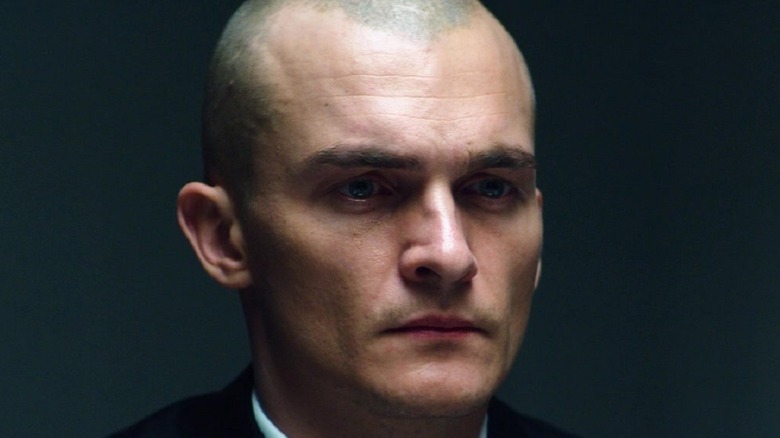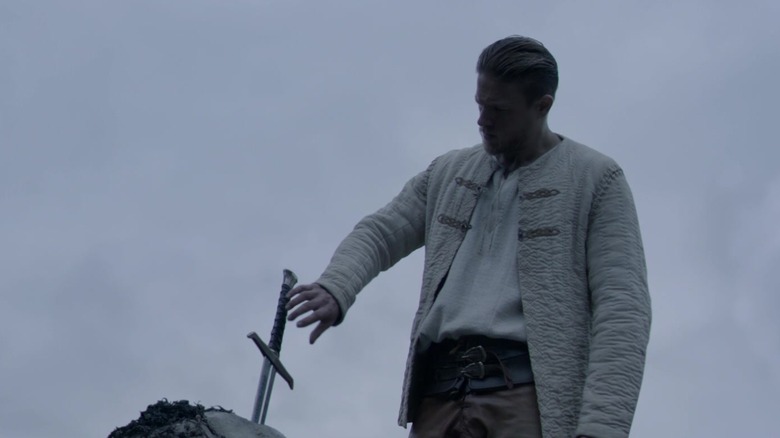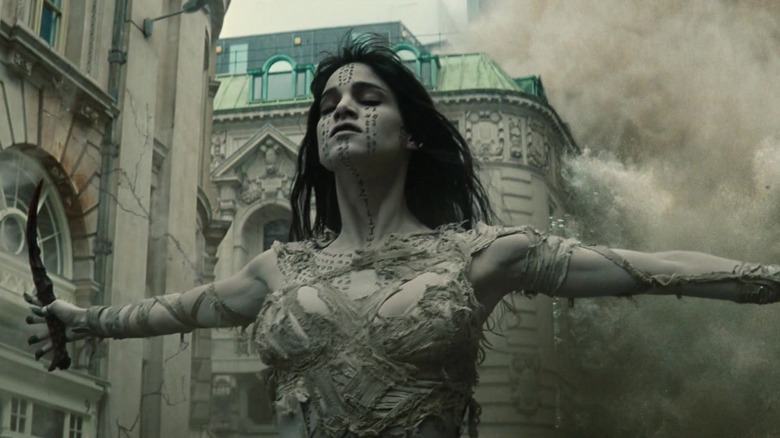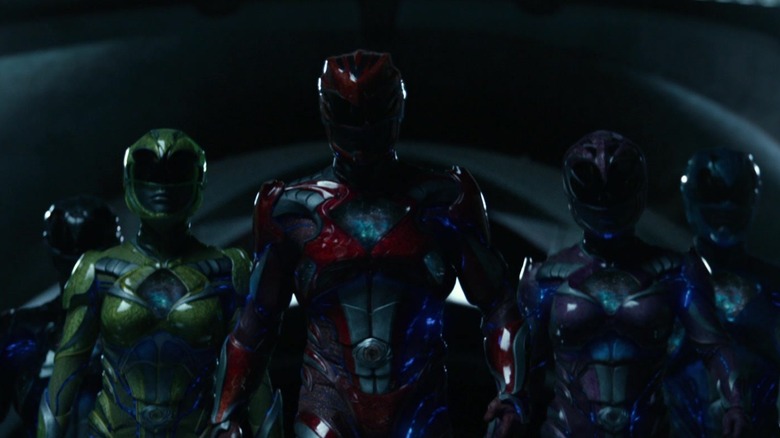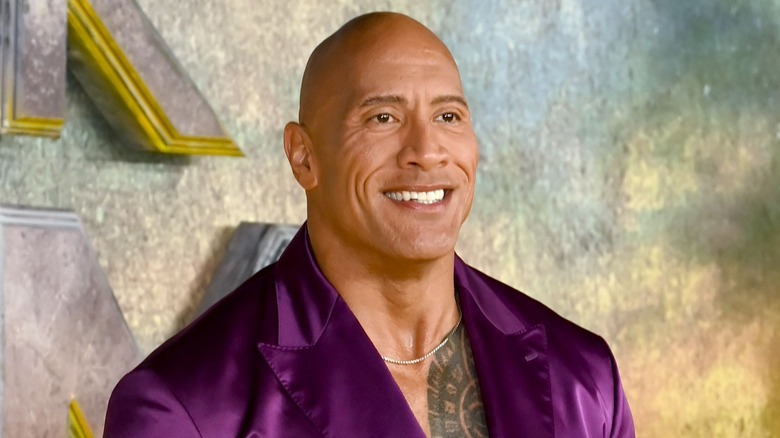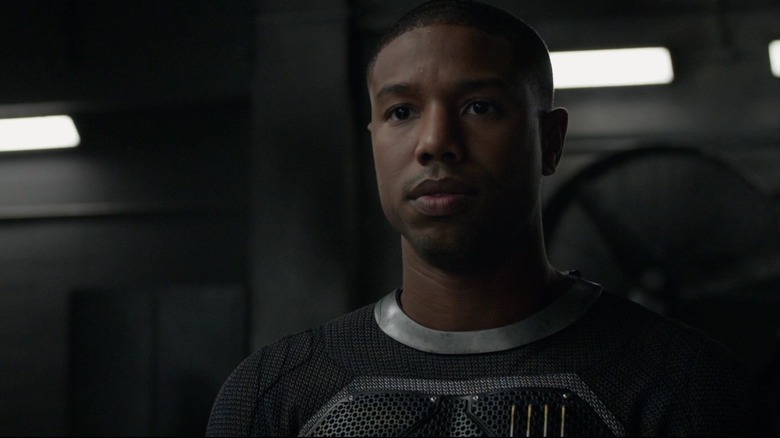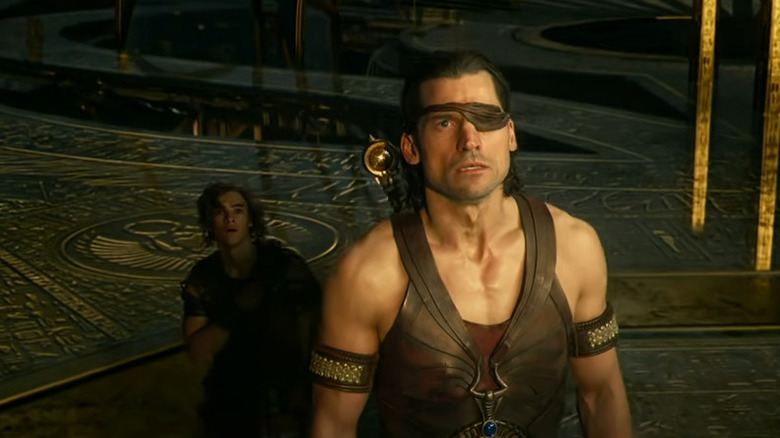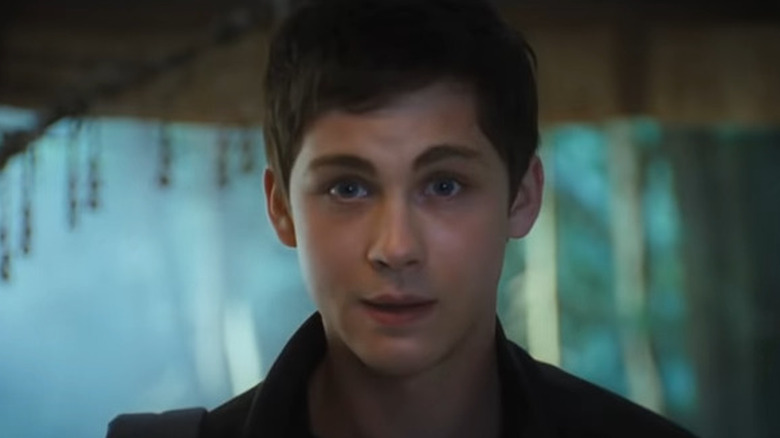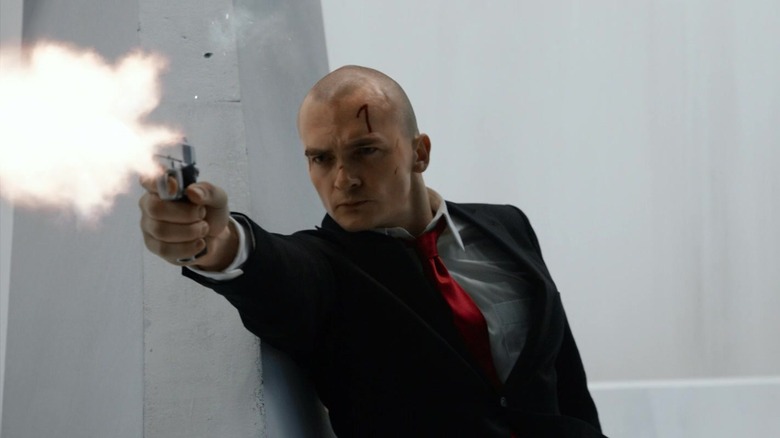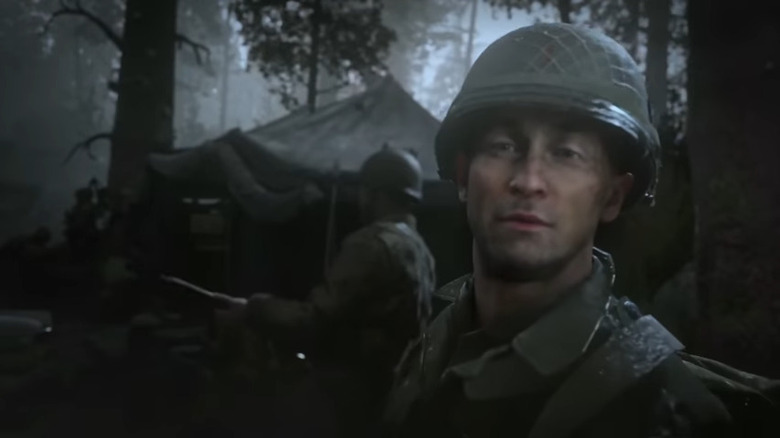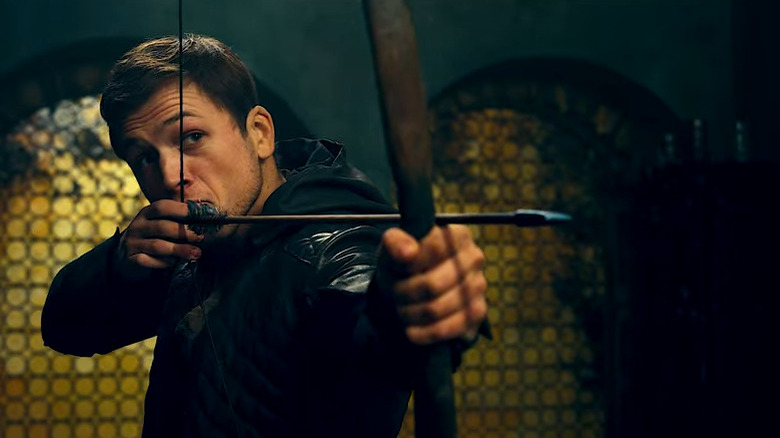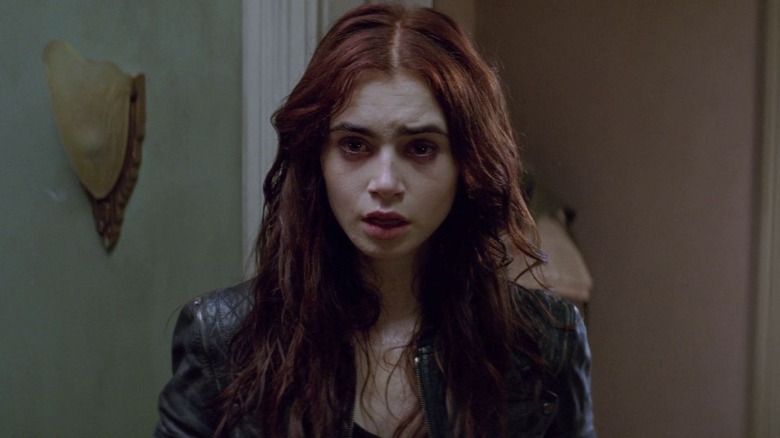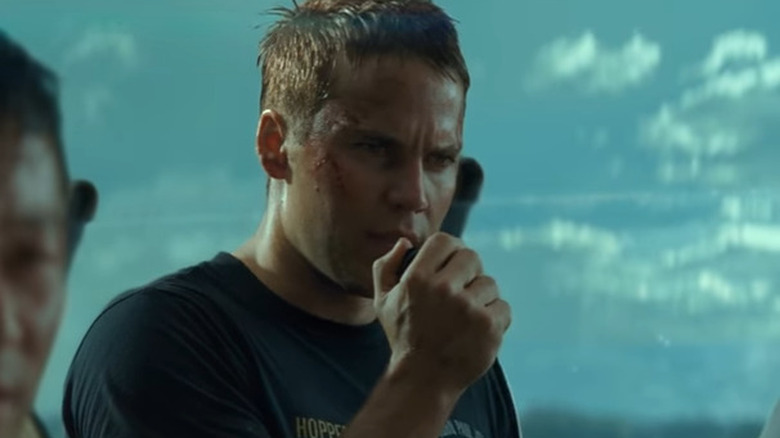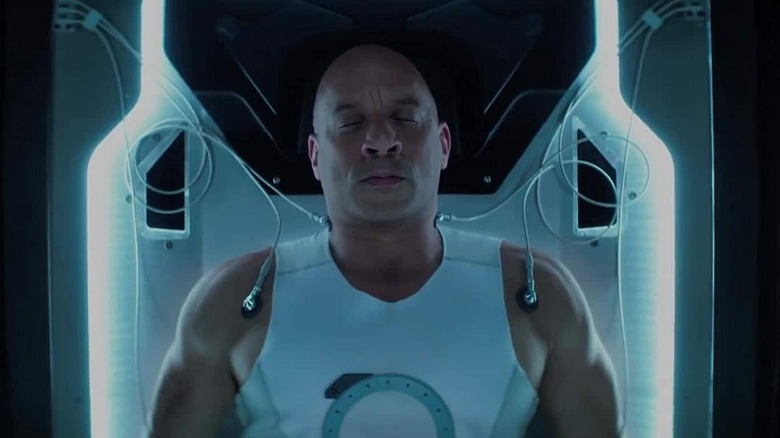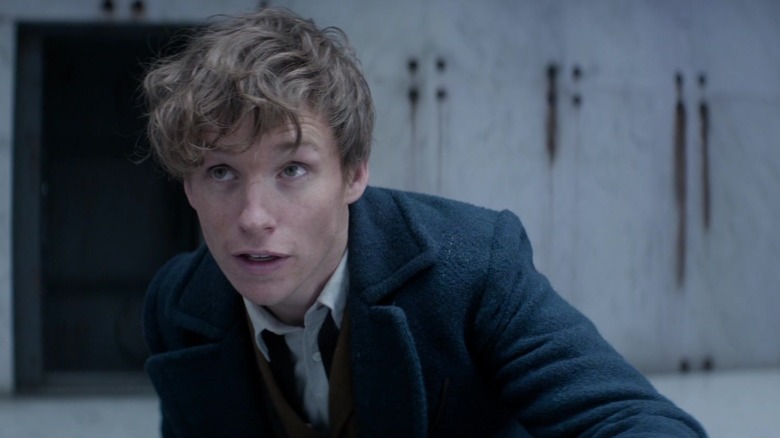Long-Term Movie Franchises That Didn't Pan Out
As the saying goes, the road to hell is paved with good intentions — and so too are many subsequent box office flops crafted with the hope of inspiring lengthy franchises. But it doesn't always work out. With the popularity of sagas like "Star Wars" and the Marvel Cinematic Universe (MCU) — two franchises that are consistently profitable — Hollywood is always trying to replicate the lightning in a bottle that made certain films beloved enough to spawn endless sequels and spin-offs. However, for every successful movie franchise, there are those that result in a legendary flop. Placing the big-picture, long-term world-building as a priority over satisfying standalone narratives is almost always a recipe for disaster. That's how you end up with "The Seeker: The Dark is Rising" instead of "Harry Potter and the Sorcerer's Stone."
Cinema history is littered with countless examples of long-term franchises that never panned out — especially in the last decade when the MCU made shared narratives the hot new item every studio had to chase. These projects range from botched reimaginings of classic characters, to elaborate plans for video game adaptations, and even a franchise centered around D-list toys. For all their differences, what these properties share is the grim fate of never getting to fully realize the expansive plans they had for future installments. These are just some of the ill-fated franchises that didn't quite pan out as hoped.
King Arthur: Legend of the Sword
Warner Bros. struggled for years to get its modern blockbuster version of the King Arthur mythos off the ground, but those plans finally came to fruition with the 2017 Guy Ritchie-directed movie, "King Arthur: Legend of the Sword." The studio clearly hoped Ritchie could breathe new life into King Arthur just as he did with another icon of British fiction, Sherlock Holmes. Not only that, but the studio had planned to use "Legend of the Sword" as the launchpad for a saga that would span at least six films and chronicle various members of Arthur's round table (via The Telegraph), before bringing them together in an Avengers-style team-up movie.
In an age of cinematic universes, Warner Bros. thought it had the next big thing, making an expansive franchise out of the instantly recognizable King Arthur lore. The small problem here, though, was that "King Arthur: Legend of the Sword" turned into a legendary box office bomb. After grossing only $146 million worldwide on a $175 million budget (via Deadline), "Legend of the Sword" turned into the kind of movie that keeps studio executives up at night rather than the sort that inspires an enduring saga. With this box office calamity, any plans for further adventures in the reimagined King Arthur universe were promptly disposed of.
The Dark Universe
While it is now a punching bag on the internet, it's easy to forget that at one point, the Dark Universe — a planned cinematic universe reimagining the Universal Monsters — had a lot of hype behind it. The plan was to kick off with the Tom Cruise vehicle, "The Mummy" in 2017, and there were extensive plans for different modern takes on the vintage monsters. These included a star-studded take on "Bride of Frankenstein," and rumored updated versions of "The Wolf Man" and "Van Helsing." If Universal had managed to pull off the Dark Universe, it would've supplied a steady stream of projects for the studio — potentially for decades to come.
Unfortunately for the studio, the Dark Universe fizzled out just as it began. "The Mummy" flopped in its theatrical run (via Deadline), immediately poisoning the well for any potential future movies. Future productions in the franchise were shelved and talks of continuing any storylines introduced in "The Mummy" suddenly fell silent. Years later, Universal head Donna Langley admitted that the Dark Universe failed on all fronts, and chalked up its demise to a misconception on the part of the studio regarding what audiences wanted from these enduring monsters (via The Hollywood Reporter).
Power Rangers
The "Power Rangers" TV show has gone on for decades — constantly working with new cast members and finding different ways to have the titular superheroes fight an assortment of wacky baddies. It's no surprise, then, that a big-screen reboot of the property was initially planned to span several different motion pictures. The 2017 "Power Rangers" movie hailed from Lionsgate — a studio that was not shy when it came to crowing about its expansive vision for the property. A little under a year before the feature even premiered, the leaders at Lionsgate openly said that "Power Rangers" could spawn as many as seven sequels (per Variety).
There certainly was no shortage of lore for all those potential sequels to draw from, and in true MCU-style, 2017's "Power Rangers" teased the presence of the Green Ranger in a tantalizing post-credit scene. However, all those plans for a long-term franchise went up in smoke when "Power Rangers" only grossed $142 million worldwide on a $120 million budget — which included a dismal $57.1 million overseas haul. There wasn't anywhere near enough demand for moviegoers to fulfill Lionsgate's dreams of "Power Rangers" running as eternally in movie theaters as it has on television, and plans for more movies reached a stalemate.
A Robert Ludlum Cinematic Universe
Combined, the "Jason Bourne" movies have all made Universal Pictures a staggering $1.66 billion worldwide. Based on a series of books penned by Robert Ludlum, "Bourne" is a guaranteed moneymaker for Universal, but there's only so much you can do with a character like this before audiences grow weary. Attempts to expand the franchise beyond Matt Damon's Bourne — as seen in 2012's "The Bourne Legacy" — proved it's hard to make audiences care about this world without the presence of Damon. However, that challenge didn't stop Universal from conjuring up big plans for a series of movies that would be based on other works by Ludlum.
Two months before the 2016 movie "Jason Bourne" debuted, Universal Pictures announced it was developing a cinematic universe of movies all based on books by Robert Ludlum (via The Hollywood Reporter). This would kick off with an adaptation of "The Janson Directive," anchored by mega-star Dwayne Johnson. The prospect of combining the aesthetics of the "Bourne" movies with a bankable lead like Johnson must've sounded like a dream come true for Universal executives. However, there was never any further progress on this proposed universe. The eventual mixed response to Damon's return in "Jason Bourne" may have diluted Universal's enthusiasm for Ludlum adaptations, while Johnson's busy schedule also likely caused the project to be endlessly delayed. Whatever the reason, ambitious plans to keep cranking out movie adaptations of Robert Ludlum novels eventually went nowhere.
Fantastic Four
With the 2015 incarnation of "Fantastic Four," 20th Century Fox didn't just want to get a few new movies starring this group of superheroes going. It wanted this motion picture to function as a springboard for a whole string of new crossover superhero movie events that could generate profits for the studio for years to come. These ambitions were made clear by comments from "X-Men: Days of Future Past" director Bryan Singer in July 2015, who revealed to Yahoo! Movies there were concepts on the table for Fox to cross over its two big Marvel superhero properties, "X-Men" and "Fantastic Four." As for how such a meet-up would be made possible, Singer said this crossover would happen because of time manipulation — an element that played a prominent role in "Days of Future Past."
Of course, all those plans dried up a few weeks after Singer's original comments when "Fantastic Four" hit theaters in August 2015. The film immediately cratered at the box office, grossing just $167.9 million worldwide. To pour salt on the wounds, "Fantastic Four" was despised by audiences (via The Hollywood Reporter), making it unlikely that moviegoers would show up for any future features headlined by this incarnation of these characters. With those disappointing box office numbers and lack of audience support, it was clear 20th Century Fox's plans for superhero crossover events would need to be shelved for now at least.
Gods of Egypt
As "Gods of Egypt" was preparing to hit theaters at the end of February 2016, The Los Angeles Times delivered a piece talking about all the lofty expectations that movie studio Lionsgate once had for the film. Specifically, Lionsgate had harbored hopes that "Gods of Egypt" would be able to function as the studio's new go-to long-term franchise now that "The Hunger Games" saga had come to a close. The universe of "Gods of Egypt" was so packed with fantastical characters and dense lore that it could've sustained countless installments. The unpredictable variable in this equation, though, was the moviegoing public, who needed to show up in droves to justify "Gods of Egypt" being turned into a massive franchise.
Needless to say, that didn't happen. "Gods of Egypt" tanked in its theatrical run, grossing just $138.8 million worldwide and only $31 million domestically on a $140 million budget. That sum made "Gods of Egypt" one of the biggest box office failures of 2016, rather than something that would spawn a sea of sequels. Whatever caused it to sink at the box office, it quickly became clear that "Gods of Egypt" was not destined to be Lionsgate's next golden goose franchise.
Percy Jackson
Unlike many of the proposed movie sagas on this list, the "Percy Jackson" films at least got as far as two movies instead of being shut down after just one or during the development process. Based on Rick Riordan's acclaimed books, the director of the first "Percy Jackson" film, Chris Columbus, openly said to Empire back in 2010 that he had high hopes for handling further installments in the franchise and seeing how actors like Logan Lerman would grow over multiple movies. In 2013, a sequel finally arrived in the form of "Percy Jackson and the Sea of Monsters," which adapted the second of the original five novels.
Even just doing one sequel would seem to tee up the movies nicely for adapting the various installments of its source material, but it never went any further on the big screen. Lerman would confirm less than a year after "Sea of Monsters" debuted that a third feature was officially scrapped (via MTV). By this point, Lerman and his co-stars were at least in their early 20s, making it difficult for them to continue convincingly portraying teenagers in potential sequels. More crushing, though, was that neither of the "Percy Jackson" movies proved all that lucrative at the box office. Any hopes that these books could span an expansive cinematic saga akin to "Harry Potter" were never realized. However, there is a small glimmer of hope in the future as a "Percy Jackson" Disney+ series — with a completely new cast — is in the works.
The Square Enix cinematic universe
Square Enix has been responsible for many iconic video games, including the "Final Fantasy" series. Given the ubiquity of its titles, it's not surprising that many of them have found their way into major film adaptations. With the release of 2015's "Hitman: Agent 47," producer Adrian Askarieh explained to IGN that he had high ambitions of going even further than just making further standalone movies based on Square Enix properties. Since Askarieh was also tackling a "Just Cause" feature, he had started to formulate concepts for a whole cinematic universe of movies rooted in Square Enix characters.
Askarieh was open about the fact that he could never make a full ideal version of this concept simply because he didn't own the film rights to all the Square Enix properties (namely "Tomb Raider"), but considering he did have the rights to other Square Enix brands like "Deus Ex," he was confident he could still pull off an exciting cinematic universe. The kicker here, though, was that Askarieh himself said that the existence of this universe hinged on the box office takings of "Hitman: Agent 47." That title would go on to gross $82.1 million worldwide on a $35 million budget, not a catastrophic haul but certainly not enough to inspire a cinematic universe. With that box office sum, it was game over for any Square Enix cinematic universe plans.
Call of Duty
Despite individual "Call of Duty" titles always making money hand over fist (via The Washington Post), this video game franchise has yet to make its way to the big screen. However, back in 2017, there were plans to launch "Call of Duty" as a massive multi-media franchise that would span both movies and TV. Stacey Sher and Nick van Dyk — the two leaders of Activision Blizzard Studios — explained to The Guardian that they had already overseen several screenplays for various "Call of Duty" films and were eyeballing a 2018 window for when the first of these movies would begin shooting. Their ambitions for "Call of Duty" on the big screen included a string of movies, all of them adhering to a style of storytelling they hoped would echo the various Marvel Cinematic Universe titles.
In 2018, "Sicario: Day of the Soldado" director Stefano Sollima was hired to helm the first of these "Call of Duty" movies (per Variety), but the production would never get any further than that. Sollima would later disclose to Bad Taste that the original "Call of Duty" film and all its sequels were now on hold since movies were no longer a priority for Activision Blizzard. A drastic change in corporate priorities ensured the demise of the expansive "Call of Duty" cinematic universe before it ever produced one movie.
The Merry Men cinematic universe
In the wake of "The Avengers" becoming a record-shattering box office hit in 2012 (via CNN), everyone in Hollywood wanted to get in on the cinematic universe bandwagon. But entities like the MCU don't just grow on trees and studios were going to need to get creative in how they created the next long-term saga. In October 2014, Sony Pictures executives were convinced they had the perfect fodder for a cinematic universe, using the Robin Hood mythos. The studio spent well over $1 million on a pitch for a franchise (via The Hollywood Reporter) that would've dedicated individual movies to Robin Hood and the various members of his Merry Men. The idea was to reimagine these characters more in the vein of "Mission: Impossible" than Errol Flynn.
A few months after this announcement, Hollywood had gotten Robin Hood fever, with several studios creating their own takes on the material (per Deadline). At this juncture, Sony was still committed to this expansive project and had even recruited Jerry Bruckheimer as a producer for the affair. However, no further news ever emerged on these plans. There are countless reasons why Sony never followed through on its initially bold plans to make Robin Hood the next Iron Man. However, the disastrous box office haul of Lionsgate's "Robin Hood" in 2018 likely put the final nail in the coffin of Sony's ambitions to turn Robin Hood into a blockbuster franchise.
The Mortal Instruments
After its opening weekend, it was clear "The Mortal Instruments: City of Bones" would not realize its ambitions of inspiring endless sequels adapting the various entries in its source material. "City of Bones" cost $60 million to make and only made $9.3 million over its initial three-day opening weekend — a disastrous result that ensured hopes of being a long-running franchise were done. However, production company Constantin Film had long been committed to producing "Mortal Instruments" sequels, to the point that it hired Sigourney Weaver to play a key role in the first follow-up, "City of Ashes," roughly a month before "City of Bones" hit theaters (via The Hollywood Reporter).
Initially, Constantin claimed that "City of Ashes" was only postponed, not canceled, with the feature later planning to start shooting in 2014 (per The Hollywood Reporter). Of course, that sequel would never see the light of day, with the original "City of Bones" movie becoming one of several "Twilight" knock-offs in the early 2010s to never catch on. Fans of the original books that "City of Bones" was based on would at least get to see further adventures in this universe realized in live-action form with the eventual TV show "Shadowhunters." While this was a boon for fans of the books, the existence of a TV reboot of this property underscored how much the "City of Bones" movie had missed the mark as a launchpad for a big-screen franchise.
The Hasbro cinematic universe
Though Hasbro toys have made some of the most popular playthings on the planet, film adaptations based on Hasbro properties have a far more mixed record. The "Transformers" saga has stretched on for over 15 years — with varying degrees of success — and there were three separate "G.I. Joe" titles. However, "Battleship" sank without a trace at the box office and other attempts at reimagining Hasbro properties for the modern moviegoing landscape — such as "Jem and the Holograms" — went terribly. Still, these box office results didn't deter Hasbro from briefly pursuing plans to execute a sprawling cinematic universe.
The proposed Hasbro cinematic universe would've been populated by lesser-known properties owned by the toy company, like "M.A.S.K." and "Micronauts," and in 2016, a sizeable writer's room was assembled to come up with potential plotlines for this expansive franchise (per Variety). In theory, this collection of talent should've produced a steady stream of ideas, however, producer Lorenzo di Bonaventura admitted to Entertainment Weekly in 2021 that they failed to generate much quality material for prospective Hasbro film adaptations. With this writer's room turning out to be a bust, the Hasbro cinematic universe never got off the ground.
The Valiant Comics cinematic universe
When a modern "Bloodshot" movie was first announced in April 2015, the plan was for it to be the start of something bigger (per The Hollywood Reporter). The superhero hailed from Valiant Entertainment — home of a massive shared universe in the world of comics — and Valiant planned to bring that universe to the big screen in partnership with Sony and Columbia Pictures. "Bloodshot" was projected to arrive in 2017, while other adaptations of Valiant concepts like "Harbinger" would arrive shortly after. If everything worked out, Valiant was about to produce the next great comic book movie cinematic universe.
However, it took years for "Bloodshot" to reach movie theaters, and by the time it was released in March 2020, it seemed doubtful that an expansive Valiant Comics cinematic universe was still in play. "Bloodshot" director David S.F. Wilson did claim that his film could still tie into other Valiant Comics movies (via Den of Geek), while even after "Bloodshot's" lack of box office success, the heads of Valiant Entertainment claimed to Deadline that there were still expansive plans in place for these comic book properties to become an interconnected franchise. It seems there may still be life in some Valiant properties, as a "Harbinger" movie seems to be back on the table (per Deadline). But it remains to be seen what — if any — connection it will have to "Bloodshot."
Fantastic Beasts
A month before "Fantastic Beasts and Where to Find Them" hit movie theaters, a big announcement was made that this feature would no longer be the start of a trilogy as previously stated. Instead, there were now grand ambitions for the story of Newt Scamander to span five massive movies (per Variety). Grand plans at the time had this franchise delivering a new movie every other year until 2024. While it would've normally been foolhardy to commit so heavily to a long-term saga before the first film ever debuted, the original "Harry Potter" movies lasted for eight installments. On paper, it didn't seem like a ludicrous notion that the "Fantastic Beasts" side of this universe could sustain five separate adventures.
Unfortunately for Warner Bros. — and others with a vested interest in the "Fantastic Beasts" features — Newt Scamander and his chums never became as beloved as the Wizarding World installments that came before. By the time the third movie — "Fantastic Beasts: The Secrets of Dumbledore" — opened in April 2022, it could only generate $404 million worldwide. By the end of that year, the inevitable bleak news emerged that the final two entries in the "Fantastic Beasts" saga were not going forward at the moment (per Variety). Despite all the initial hype about this corner of the Wizarding World, the "Fantastic Beasts" saga failed to capture audiences and didn't reach its initial goal of five movies.
